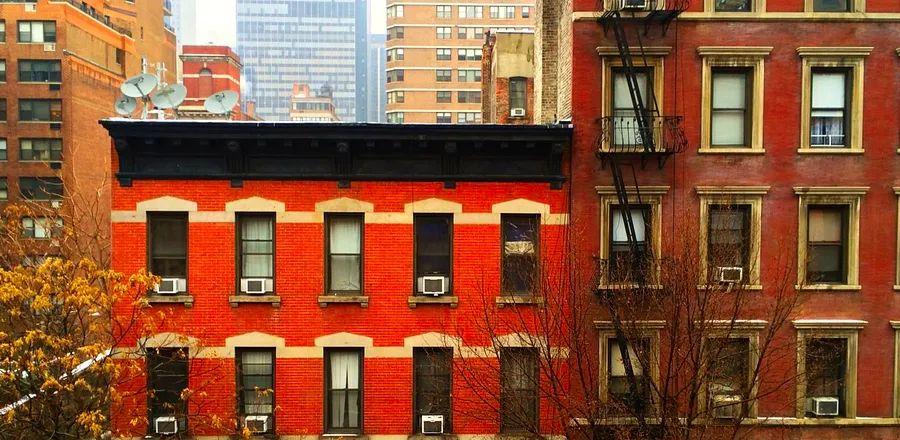Do New Airbnb Regulations Signal the End of Vacation Rentals in NYC?

On September 5, New York City's vacation rental landscape changed dramatically. New rules were implemented that restrict homeowners from renting their properties through platforms like Airbnb and Vrbo. A quick look at Airbnb reveals the stark new reality: only 487 entire homes are available across the city for random dates in October. In March 2023, city officials estimated around 10,800 listings were illegal short-term rentals, most of which have now disappeared from the platform.
What are the new short-term rental regulations in New York City?
Before September 5, New York City already had laws in place that prohibited residents from renting their apartments for less than 30 days (deemed “short-term rentals”) if they weren’t present during the guests' stay and if the entire home was accessible without them. Additionally, renting to more than two guests simultaneously was also banned. However, enforcement of these regulations was minimal until now. The city is now actively enforcing these rules, with fines reaching up to $5,000.
To navigate the newly enforced rules, which survived multiple legal challenges by Airbnb to take effect on September 5, hosts must register with the city to legally rent short-term—and they must meet a comprehensive set of strict criteria to gain approval. Consequently, vacation rental platforms like Airbnb, Vrbo, and Booking.com can only collect fees from hosts after confirming their registration and approval, or they too risk facing fines.
Airbnb argues that New York City's regulations are unique compared to other U.S. cities like San Diego and Seattle, which have adopted less stringent approaches to short-term rentals. For instance, in Los Angeles and San Francisco, homeowners can rent their properties while they are away.

Shutterstock
Can you still secure a vacation rental in New York City now?
Currently, Airbnb is not canceling any bookings for stays under 30 days scheduled before December 1. However, reservations made for dates after December 2 will be canceled and refunded, according to Airbnb. They have also provided hosts with guidance on adhering to the new regulations.
The city has stated that it will not physically remove any guests from a short-term rental unless there is a health or safety concern. However, it’s wise to confirm with your host about their registration approval if you have a booking for less than 30 days to avoid any unexpected cancellations.
Tourists coming to New York City are already noticing the significant drop in affordable short-term rentals. Many potential visitors express that they find hotel prices prohibitively high and that hotels sometimes don't meet their needs.
“We lived in the city for years, and I wanted to bring my family back this fall, but hotels are not ideal for small children—home rentals are a lifesaver for families and pet owners. We prefer staying in the Brooklyn neighborhoods we love, which have limited hotel options,” shares Freda Moon, who now resides on the West Coast.
Will this discourage potential tourists from coming to NYC? It’s too early to tell, but Airbnb contends that short-term home rentals are essential for revitalizing the city’s tourism industry, which has struggled since the pandemic. The company claims that vacation rentals attract a different kind of guest than hotels do—the average daily rate of Airbnb listings in New York City areas without hotels is about 30 percent lower than in hotel-rich areas, according to their report.
What is the reason behind New York City’s restrictions on short-term rentals?
Many cities have long clashed with Airbnb and similar short-term rental platforms, including New Orleans and Barcelona, but this marks the latest—and most significant—victory for a municipality. New York City's primary argument is that renting these homes to tourists exacerbates the already strained housing market, making it even harder for residents to find affordable living options.
Moreover, New Yorkers residing in buildings with short-term rentals have voiced complaints about transient guests causing various issues, including cleanliness, noise, and even crime.
“I’m so relieved to see Airbnb leave,” states Sarah Rose, a resident of Hell’s Kitchen in Manhattan. “In a city facing a housing crisis, it deprived residents of vital housing inventory.”
Shubha Bala, a resident of Crown Heights in Brooklyn, shares similar concerns. She worries about low-income and minority residents being displaced. “When I saw the concentration of Airbnbs in BedStuy—a historically Black neighborhood—and learned that many of these rentals were acquired by underpaying long-term Black residents, only to be transferred between corporations and sold for significantly more years later, I realized that my inconvenience of not finding an Airbnb for visiting relatives pales in comparison to the displacement of Black families,” she explains.
Additionally, the influence of the hotel industry, a clear competitor to vacation rental platforms, should be considered. The Hotel and Gaming Trades Council, representing nearly 40,000 non-managerial hotel workers across New York City and surrounding areas, has long opposed short-term rental platforms and maintains close ties with Mayor Eric Adams. In fact, the council commissioned a study back in 2018 to demonstrate that these platforms harm NYC’s housing supply. While the hotel industry may gain from these changes, the city’s housing problems remain a pressing issue.

Josh Wilburne/Unsplash
Are there drawbacks to restricting short-term rentals?
Airbnb claims it has spent much of the past decade collaborating with the city to promote clear and effective regulations for short-term rentals. In court, the company asserted that the city should permit “un-hosted” rentals in certain one- and two-family homes, arguing that the approval process for hosting short-term rentals is excessively complicated. They emphasize that these rentals are essential for bringing tourism revenue to the city and offer alternatives for those wishing to stay outside of Manhattan, where hotels in many outer borough neighborhoods are nearly nonexistent.
According to Airbnb, less than half of all Airbnb listings in New York City are located in Manhattan, with Brooklyn accounting for 37 percent and Queens holding just 1 percent of the listings.
While it’s premature to determine the impact of this new enforcement on the city’s housing market, Airbnb maintains that restricting short-term rentals is not the answer.
Airbnb references a report by Boston University professor Michael Salinger, which found that implementing what the report describes as a “de facto ban” on short-term rentals in New York City will do little to ease the city's housing affordability crisis. The report suggests that over 80 percent of Airbnb listings in NYC could earn more if rented long-term, indicating that hosts likely have other reasons for not opting for long-term rentals. Airbnb argues that discouraging short-term rentals will not lead to an increase in permanent housing supply.
Aitan Weinberg, a former Airbnb host for six years, recounted his attempt to register in June but found the process confusing and received no response for months. After following up, he was ultimately denied, despite owning a two-family home in Prospect Heights, Brooklyn, where he is present when hosting guests in the garden apartment of his townhouse. He reports having no issues with rowdy guests and primarily rents to visiting grandparents with family nearby, where hotel options are scarce.
According to the New York Times, as of August 28, the city had received approximately 3,250 applications but had only approved 257 of them.
“Our reason for using Airbnb instead of a long-term rental was to accommodate our out-of-town parents; we wanted them to have a convenient place to stay when they visited,” explains Weinberg. “By renting it out as a short-term rental, we thought we’d maintain flexibility for both situations.”
Moreover, the income he and his wife earn from hosting on Airbnb is substantial. “We could only afford this home because we planned to rent out one of the units—we would never have been able to manage the ongoing monthly expenses otherwise,” he explains, noting that he was laid off earlier this year and is currently without a job.
Weinberg adds, “[The new regulations] couldn’t have come at a worse time for us to lose income. Thankfully, we have enough savings that we aren’t forced out of our home, but I can only imagine how difficult it is for others in similar situations. That’s truly unfortunate.”
Evaluation :
5/5



